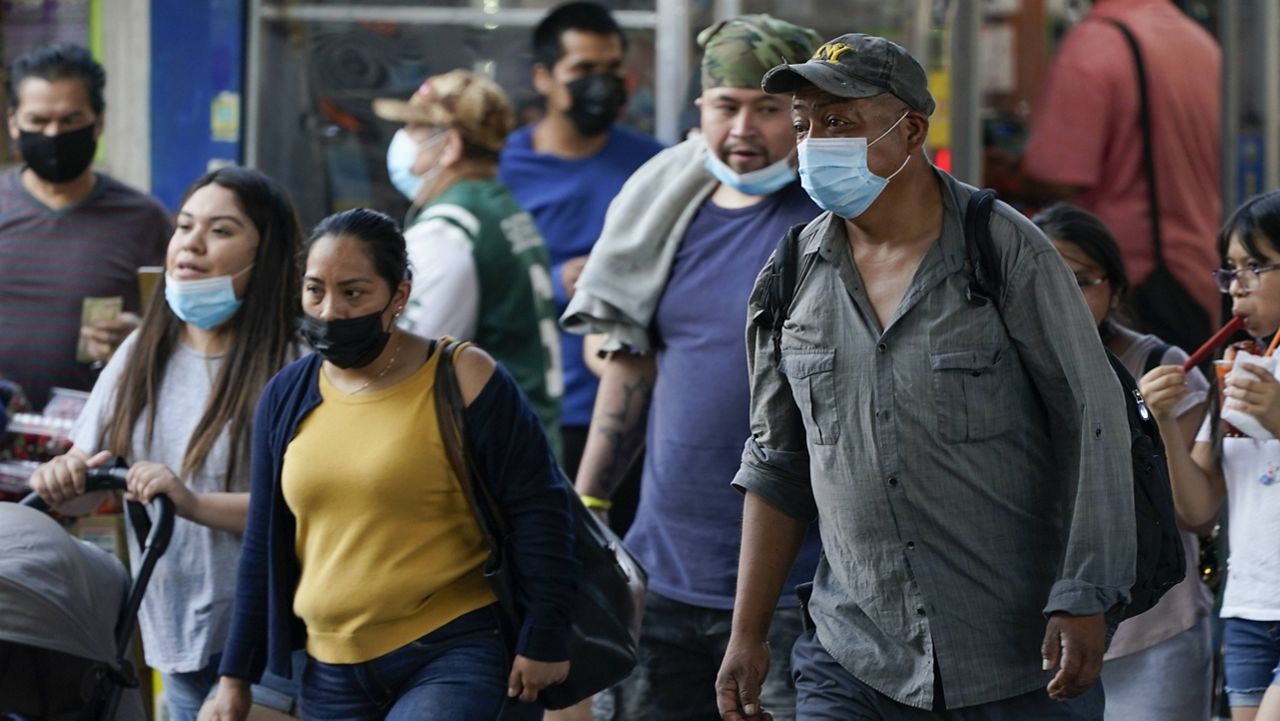The number of confirmed COVID-19 cases in the United States since the start of the pandemic has now surpassed 40 million, according to data compiled by Johns Hopkins University.
What You Need To Know
- The number of confirmed COVID-19 cases in the United States since the start of the pandemic has now surpassed 40 million, according to data compiled by Johns Hopkins University
- Health and elected officials have said the overwhelming majority of those hospitalized are unvaccinated, and the states experiencing the most infections largely also have some of the country’s lowest inoculation rates
- Dr. Anthony Fauci and Idaho Gov. Brad Little both warned in recent days that some hospitals are dangerously close to the point when they’ll have to decide who can be treated and who cannot
- President Joe Biden will deliver a speech Thursday about "his robust plan to stop the spread of the Delta variant and boost vaccinations," according to the White House, including laying out a "six pronged strategy" which will span "across the public and private sectors"
The latest unfortunate milestone comes as the country is grappling with a fourth wave of infections, driven by the highly contagious delta variant and sluggish vaccination rates.
Despite making up 4.25% the world’s population, the U.S. accounts for about 18% of all known COVID-19 cases. The number of cases in the U.S. amounts to around 12% of the country’s population, although some people have been infected more than once.
And health experts believe the 40 million figure is likely an undercount due to insufficient testing and reporting.
The virus also has claimed nearly 650,000 lives in the U.S.
Just when it appeared the rollout of vaccines had allowed the country to get a handle on the pandemic, cases began to soar again this summer. As of Friday, the seven-day average for new infections was at 150,316 — that number had fallen below 12,000 in June. The seven-day average for deaths has climbed to 1,114, the most since March 10.
Meanwhile, hospitals in states including Texas, Oregon and Idaho say they’re running out of intensive care beds to treat patients.
Dr. Anthony Fauci, director of the National Institute of Allergy and Infectious Diseases, and Idaho Gov. Brad Little both warned in recent days that some hospitals are dangerously close to the point when they’ll have to decide who can be treated and who cannot.
Health and elected officials have said the overwhelming majority of those hospitalized are unvaccinated, and the states experiencing the most infections largely also have some of the country’s lowest inoculation rates, including South Carolina, Alabama, West Virginia and Mississippi.
Little last week urged for people to get vaccinated.
“I wish everyone could have seen what I saw in the ICU last night,” he said during a presentation Wednesday.
Nearly 176 million Americans — 53% of the population — have been fully vaccinated. Nearly 207 million — 62.3% — have been given at least one shot.
Amid the delta variant surge, the pace of vaccinations has picked up. The seven-day average for doses administered is over 800,000, according to the Centers for Disease Control and Prevention. That’s up from around 440,000 in July, but far below the peak of nearly 3.5 million in April.
President Joe Biden will deliver a speech Thursday about "his robust plan to stop the spread of the Delta variant and boost vaccinations," according to the White House, including laying out a "six pronged strategy" which will span "across the public and private sectors."
"As the President has said since day 1, his administration will pull every lever to get the pandemic under control," a White House official said Tuesday. "On Thursday, the President will lay out a six pronged strategy that will help us do just that, working across the public and private sectors."
